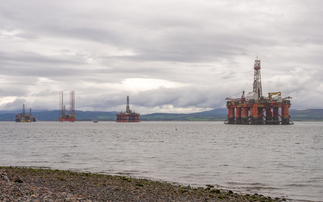Osborne's decision to help out heavy industry and coal power begs one question - how will we decarbonise carbon intensive firms?
It would be easy to join the chorus of green anguish prompted by Chancellor George Osborne's Budget for polluters; easy and hugely tempting. After all, this was a budget that made no mention of climate...
To continue reading this article...
Join BusinessGreen
In just a few clicks you can start your free BusinessGreen Lite membership for 12 months, providing you access to:
- Three complimentary articles per month covering the latest real-time news, analysis, and opinion from Europe’s leading source of information on the Green economy and business
- Receive important and breaking news stories via our daily news alert
- Our weekly newsletter with the best of the week’s green business news and analysis









